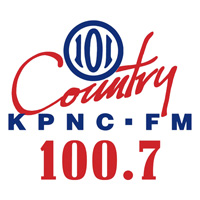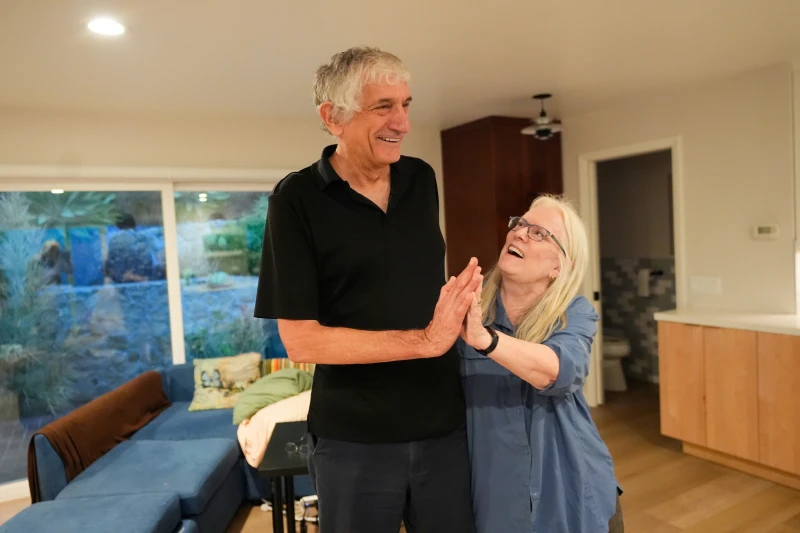STOCKHOLM (AP) — Three scientists at American universities won the Nobel Prize in physics Tuesday for research on subatomic quantum tunneling that lays the groundwork for better cellphones and faster computers and makes possible the kind of ultra-sensitive measurements achieved by MRI machines.
The work by John Clarke, Michel H. Devoret and John M. Martinis took the seeming contradictions of the subatomic world — where light can be both a wave and a particle, switches can be on and off at the same time and parts of atoms can tunnel through what seem like impenetrable barriers — and brought it to a more human scale. Their findings are just starting to appear in advanced technology and could pave the way for the development of supercharged computing.
The prize-winning research in the mid-1980s took the subatomic “weirdness of quantum mechanics” and found how those tiny interactions can have real-world applications on the human-scale level, said Jonathan Bagger, CEO of the American Physical Society. The experiments were a crucial building block in the fast-developing world of quantum mechanics.
Speaking from his cellphone, Clarke, who spearheaded the research team, said: “One of the underlying reasons that cellphones work is because of all this work.’’
The three physicists took “the scale of something that we can’t see, we can’t touch, we can’t feel” and brought it “up to the scale of something recognizable” and made it “something you can build upon,” said Physics Today editor-in-chief Richard Fitzgerald, who worked in a competing research group in the 1990s.
Clarke, 83, conducted his research at the University of California, Berkeley. Martinis, 67, worked at the University of California, Santa Barbara. Devoret, 72, is at Yale and also at the University of California, Santa Barbara.
How the winners reacted
Martinis’ wife, Jean, told Associated Press reporters who called at his home hours after the announcement that he was still asleep and did not yet know. In the past, she said, they stayed up on the night of the physics award, but at some point they decided that sleep was more important.
When his wife woke him, the new Nobel laureate said she told him “AP wanted to interview me. And I kind of knew that the Nobel Prize announcements was this week. So I put two and two together. I opened my computer and looked under the Nobel Prize 2025 and saw my picture along with Michel Devoret and John Clarke. So I was kind of in shock.”
Clarke said he was stunned and overwhelmed. His daughter called to congratulate him, and he said he had hundreds of emails.
“It had never occurred to me, ever, that I would win the Nobel Prize,” said Clarke, who called it “the surprise of my life.”
Why the work matters
Martinis — who was a senior Google scientist working toward quantum computing before co-founding his own company, Qolab — said the big future goal is quantum computing, which would be a giant leap in speed and sophistication by relying on the power of the contradictory states in that subatomic world.
That is still eight to 10 years away. But he said the team’s experiments showed “a computer could be much, much more powerful.”
Devoret is now chief scientist for Google’s quantum computing efforts.
Quantum computers are “one very sort of obvious use,” but the research could also help develop sensors that detect and measure faint phenomena, such as magnetic fields. It could advance cryptography to encode information so it cannot be easily listened to by a third party, said Mark Pearce, a professor of astrophysics and Nobel Physics Committee member.
And through better understanding of precision chemistry, it could develop better materials for daily living and even give an added boost to artificial intelligence, Martinis said.
Clarke said the research “in some ways is the basis of quantum computing. Exactly at this moment where this fits in is not entirely clear to me.”
Martinis, Bagger and Fitzgerald said it’s a bit of a stretch to say cellphones now use the breakthrough made by Clarke and colleagues. But ultra-sensitive measuring devices rely on the team’s work, including MRI machines, which would be far less useful without their advances, Bagger said.
Normally quantum mechanics is associated with the smallest pieces of matter, “where your intuition doesn’t apply,” Bagger said. “They found a way to demonstrate the weirdness of quantum mechanics” at the level where humans live.
“It is wonderful to be able to celebrate the way that century-old quantum mechanics continually offers new surprises. It is also enormously useful, as quantum mechanics is the foundation of all digital technology,” said Olle Eriksson, chair of the Nobel committee for physics.
The history and other 2025 Nobels
Tuesday’s award is the 119th time the prize has been given. Last year, artificial intelligence pioneers John Hopfield and Geoffrey Hinton won the physics prize for helping create the building blocks of machine learning.
On Monday, Mary E. Brunkow, Fred Ramsdell and Dr. Shimon Sakaguchi won the Nobel Prize in medicine on Monday for discoveries about how the immune system knows to attack germs and not our bodies.
Nobel announcements continue with the chemistry prize on Wednesday and literature on Thursday. The Nobel Peace Prize will be announced Friday followed by the Nobel Memorial Prize in economics on Monday.
The award ceremony will be held Dec. 10, the anniversary of the 1896 death of Alfred Nobel, the wealthy Swedish industrialist and the inventor of dynamite who founded the prizes.
The prizes carry priceless prestige and a cash award of 11 million Swedish kronor (nearly $1.2 million).
___
Corder reported from The Hague, Netherlands, and Borenstein from Washington. Associated Press journalist Adithi Ramakrishnan in New York contributed to this report.


















